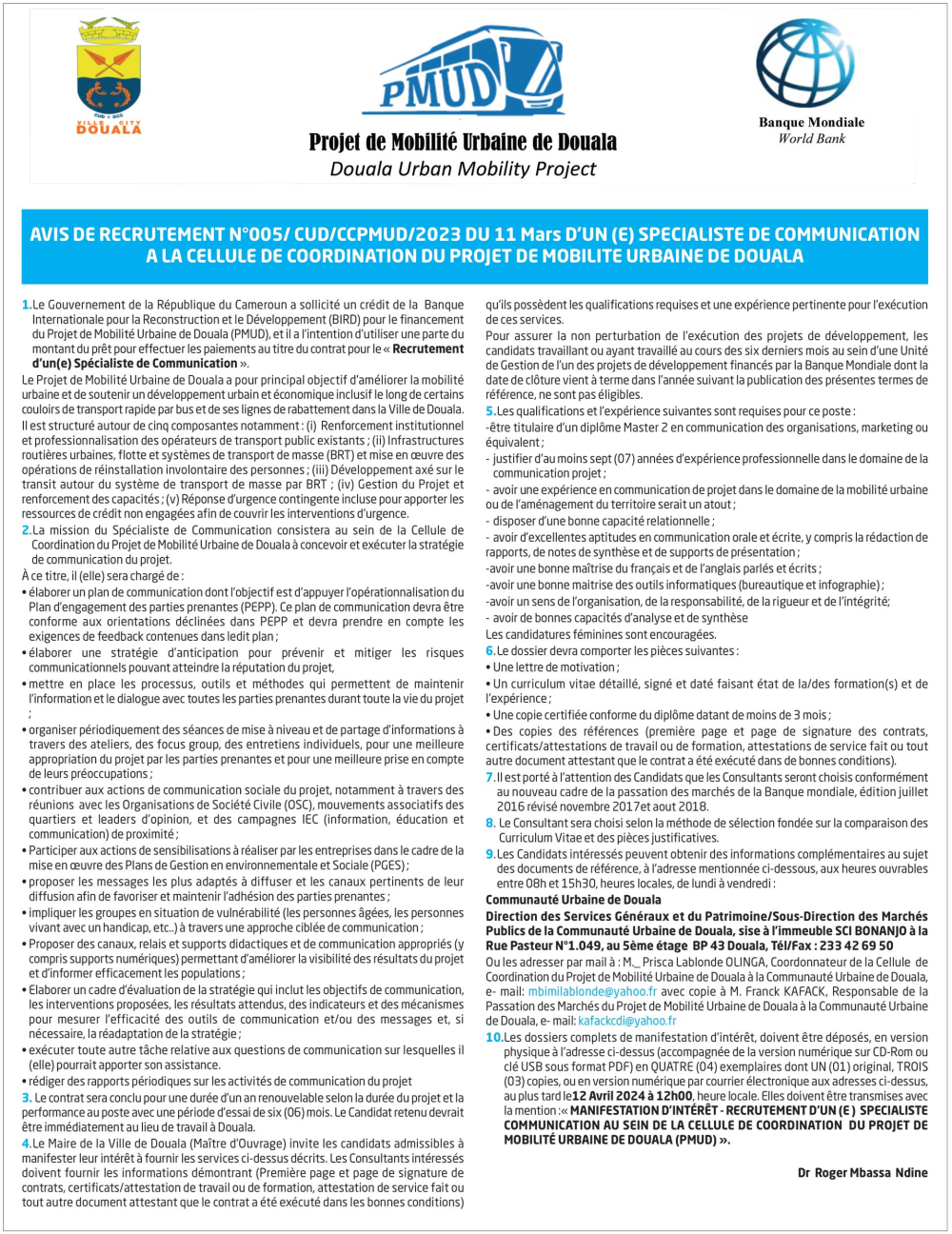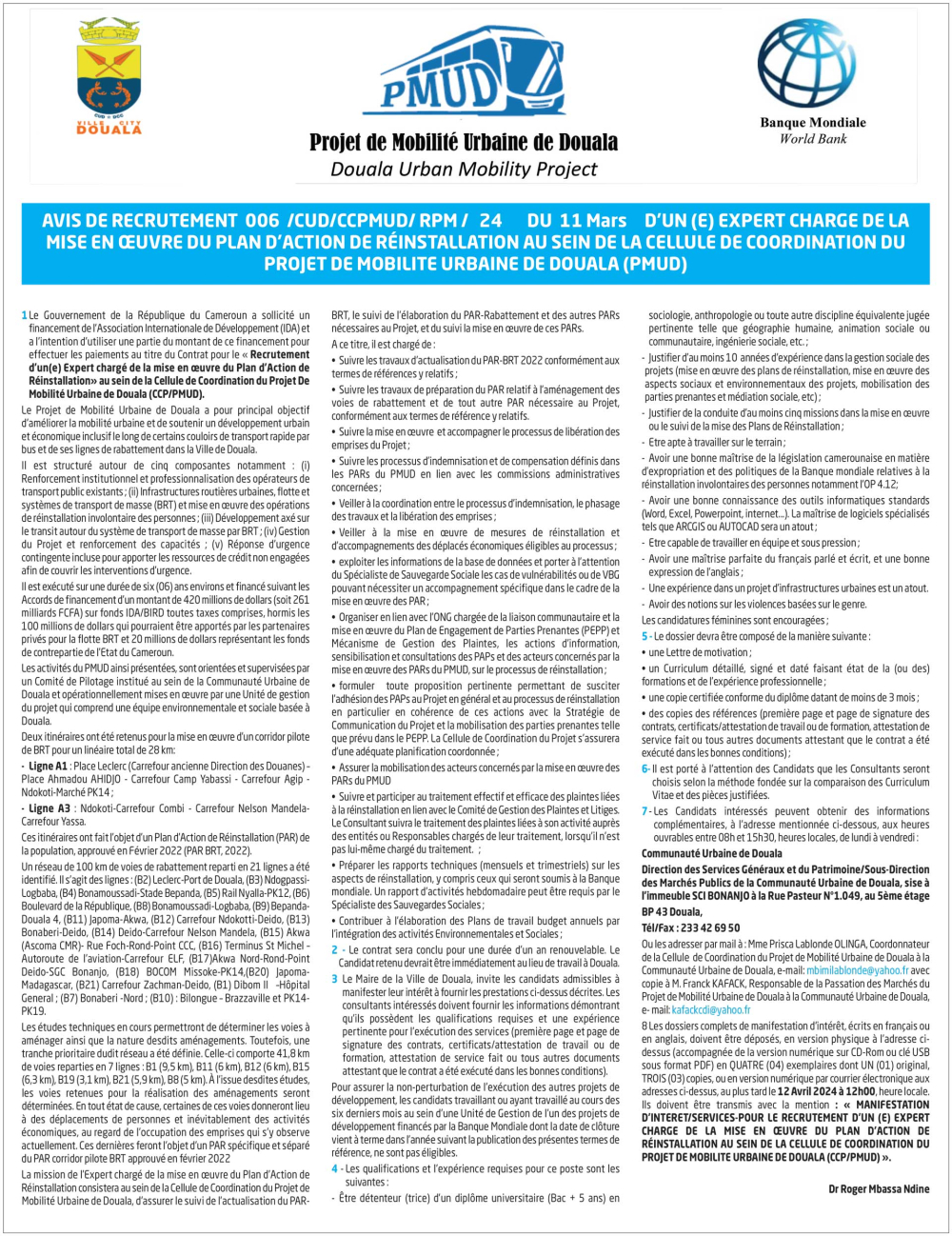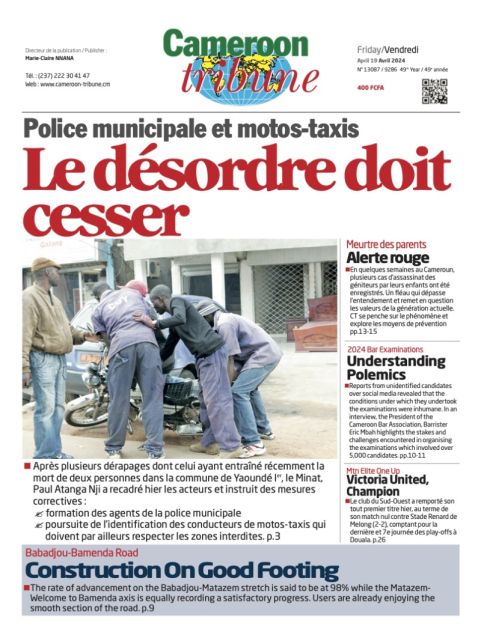Coherent Democratisation Process
- Par Richard Kometa
- 04 janv. 2021 11:51
- 0 Likes
Challenges of last year might be behind us but the ripple effects of the events that marked the year cannot go away so soon. One such outcome in the year just gone by which cannot be ignored was the reality faced by Cameroon concerning the democratisation process. Looking at the importance of the stakes in the art of nation-building, President Paul Biya had to come back to the issue in his State-of-the nation`s address on 31 December 2020.
Ensuring that State institutions function well can be qualified as one of the sacrosanct duties of every government and such a determination was evident in the seriousness that Cameroon accorded to the need to defy the Covid-19 pandemic last year and pursue the political agenda in the country. The re-run of the 9 February, 2020 legislative and Council election took place on 22 March, 2020 when the country was already placed under restrictions due to the spread of the virus in Cameroon. By 6 December, 2020 when the election of Regional Councillors was conducted, the virus was still causing havoc across the globe, but the situation did not deter Cameroonians from going out to fulfil their civic rights. s
It was as such understandable that President Paul Biya came back to such moments in the life of the country while recalling salient events that marked the year. “Our focus on the health situation did not prevent us from devoting ourselves to other essential tasks related to the management of our country, namely: - maintaining security and peace throughout our national territory; - strengthening our democratic process,” the Head of State pointed out.
The impact of the decision could also be measured from the transformation that the Regional elections could bring to the political landscape in the country. Public opinion within the past decade in Cameroon indicated the need for citizens to have a greater say in the management of their affairs at the local level. Such desires could only be translated through the putting in place of the Regions as previewed by the Constitution. The outcome of the Major National Dialogue in 2019 further entrenched the notion for self-governance by the population and the awareness was enough to enable Cameroonians to take advantage of the opportunity and vote those to handle development challenges within their regions.
Curiously, some political parties that aspire to govern suddenly found fault with the electoral process in the country in 2020 whereas they participated in the elections of Senators in March 2018 and/or the Presidential elections in October 2018. While some spent part of 2019 and 2020 complaining of electoral fraud, others went in for the legislative and council elections only to boycott the Regional election during the same year. It is certainly a political choice ...
Cet article complet est réservé aux abonnés
Déjà abonné ? Identifiez-vous >
Accédez en illimité à Cameroon Tribune Digital à partir de 26250 FCFA
Je M'abonne1 minute suffit pour vous abonner à Cameroon Tribune Digital !
- Votre numéro spécial cameroon-tribune en version numérique
- Des encarts
- Des appels d'offres exclusives
- D'avant-première (accès 24h avant la publication)
- Des éditions consultables sur tous supports (smartphone, tablettes, PC)













Commentaires